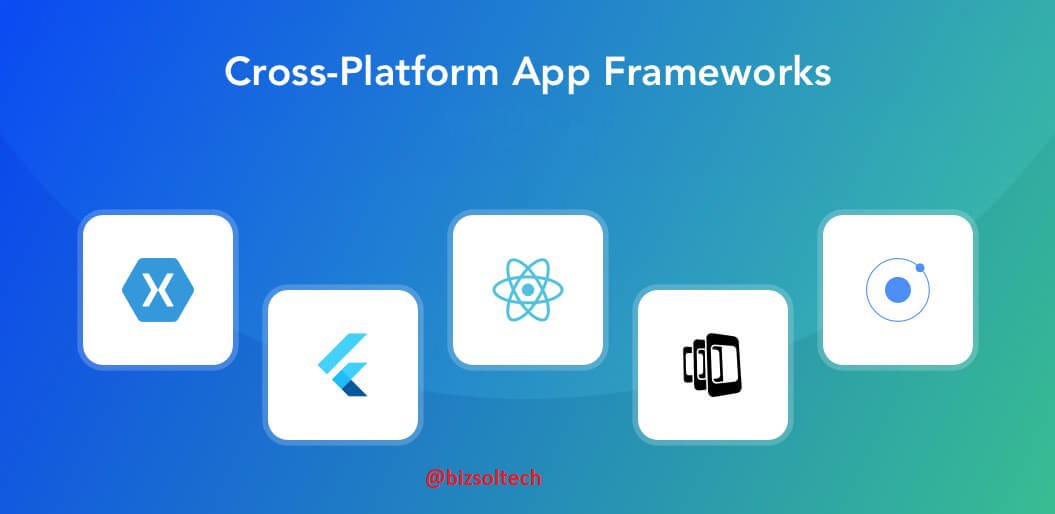Ah, the allure of cross-platform app development. The ability to craft a single codebase that seamlessly translates to both iOS and Android – a developer’s dream, right?
Well, let me tell you, my journey hasn’t always been sunshine and rainbows. In my early days, I naively ventured into the labyrinth of app development frameworks, armed with blind optimism and a thirst for efficiency.
Here’s the thing: there’s no single “best” cross-platform app development framework. It all depends on your project’s specific needs, your team’s skillset, and the desired level of performance and customization.
Today, I’m here to share the hard-won wisdom I’ve gleaned from navigating this complex landscape.
Let’s delve into 10 of the most popular cross-platform app development frameworks, each with its unique strengths and considerations.
1. React Native: JavaScript Dominates the Arena
Built by Facebook, React Native leverages JavaScript, a language many developers are already familiar with. This framework utilizes native UI components, ensuring a look and feel that’s indistinguishable from native apps.
Popular tools like Redux and MobX help manage complex app states, while hot reloading allows you to see code changes reflected in real time, accelerating development.
React Native excels when building user-interface-heavy apps with a focus on performance.
2. Flutter: Google’s Take on Cross-Platform
Developed by Google, Flutter offers a unique approach. Instead of relying on native UI components, it uses its own rendering engine (Skia) to paint the UI directly on the canvas. This translates to highly customizable and visually stunning apps.
The use of the Dart programming language might require some additional learning, but the framework provides robust tooling and widgets for rapid development.
Flutter shines when creating apps with a focus on rich visuals and custom animations.
3. Xamarin: The Power of C#
Backed by Microsoft, Xamarin allows developers to leverage C#, a widely used language, to build cross-platform apps. It offers tight integration with Visual Studio, a familiar IDE for many developers, streamlining the development process.
Xamarin. Forms provide a single codebase for building shared UI elements, while Xamarin. Android and Xamarin. iOS caters to platform-specific functionalities.
Choose Xamarin if you have a .NET background or prefer the comfort of C# for cross-platform development.
4. Ionic: Building Hybrid Apps with Web Technologies
If your app relies heavily on web technologies like HTML, CSS, and JavaScript, Ionic can be a compelling choice. It utilizes Cordova or Capacitor plugins to bridge the gap between web technologies and native functionalities.
This framework excels at building performant hybrid apps with a strong focus on web-based features.
5. NativeScript: JavaScript Goes Native
While often categorized as a hybrid framework, NativeScript offers a more “native” experience compared to Ionic. It uses JavaScript to build truly native apps with direct access to native APIs, resulting in a high-performance feel.
Choose NativeScript if you want the benefits of JavaScript development with a focus on native-like performance.
6. Kotlin Multiplatform Mobile (KMM)
This offering from JetBrains allows developers to share a common codebase written in Kotlin across Android, iOS, and even web platforms.
While it might require more setup and involve platform-specific code for UI, KMM excels at code reusability and maintaining a single codebase for core functionalities.
7. MAUI (.NET Multi-platform App UI)
.NET MAUI, the successor to Xamarin. Forms represent Microsoft’s latest push in the cross-platform app development arena. It leverages C# for code reuse and offers a single codebase for building cross-platform UI elements.
While still relatively new, MAUI has the potential to be a strong contender in the cross-platform space, especially for developers already invested in the .NET ecosystem.
8. Appcelerator Titanium
One of the early players in the cross-platform game, Appcelerator Titanium leverages JavaScript for development. It offers a rich set of UI components and tools, but the framework can have a steeper learning curve compared to some of its younger competitors.
9. Corona SDK (Now Solar2D): Building Games with Ease (Formerly)
Corona SDK, now known as Solar2D, was a popular choice for building 2D games with ease. It used Lua, a lightweight scripting language, and offered a robust physics engine and game development tools.
However, with its recent name change and shift in focus, it might not be the most actively maintained framework for contemporary game development.
10. PWA (Progressive Web Apps): The Web Strikes Back
While not a true framework, Progressive Web Apps (PWAs) deserve a mention.
PWAs leverage web technologies to deliver app-like experiences, complete with push notifications and offline functionality. They’re a great choice for simple apps with a focus on web-based features and broad reach across various platforms.
Your Choice: Considerations Beyond the Framework
Now that you’ve explored this arsenal of cross-platform app development frameworks, remember, that the “best” choice depends on your specific project.
Here are some key factors to consider:
- Project Requirements: What functionalities are essential for your app? Does it prioritize performance, rich UI, or code reusability?
- Team Skills: What programming languages are your developers familiar with? Are they comfortable with new paradigms like Flutter’s Dart?
- Development Time: How quickly do you need your app to market? Some frameworks offer faster development cycles compared to others.
- Maintenance Needs: How complex will ongoing maintenance and updates be for your chosen framework?
The Benfits of Collaboration: Why a Development Team Wins
While this guide equips you with valuable insights into cross-platform app development frameworks, navigating the complexities of app development alone can be daunting.
Here’s the truth: partnering with a professional development team with expertise in these frameworks is the smartest move you can make.
A good development team can help you choose the right framework based on your project needs, guide you through development, and ensure your app delivers a seamless user experience across platforms.
They’ll have experience with the latest tools and tech stacks, streamlining development and ensuring your app is built with best practices in mind.
Get the services of a reliable development team to navigate the labyrinth of cross-platform app development.
With the BizSol Tech expertise and the right framework by your side, you can transform your app idea into a reality that thrives across the mobile landscape.



